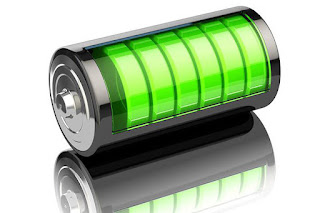Secondary Battery Market is Anticipated to Witness High Growth Owing to Rising Adoption of Electric Vehicles
The secondary battery market comprises rechargeable batteries that can be charged, discharged into an external circuit, and recharged many times, unlike primary batteries which are typically discarded once discharged. Secondary batteries such as lead-acid batteries are extensively used in automotive start-stop applications & motive power batteries for electric vehicles, electric bikes, etc. Lithium-ion batteries are gaining traction owing to their high energy density and are widely adopted in consumer electronics and stationary energy storage. The global secondary battery market is estimated to be valued at US$ 120.19 Bn in 2024 and is expected to exhibit a CAGR of 4.4% over the forecast period of 2024 to 2030.
Key Takeaways
Key players operating in the secondary battery market are 3M, ConvaTec
Inc., Coloplast Corp., Salts Healthcare, MEDLINE, Medicareplus International,
Essity Medical Solutions, Cardinal Health, Smith & Nephew Plc., Safe n
Simple, B Braun Medical Inc., Hollister Inc., and DermaRite Industries, LLC.
These players are focusing on new product development and geographic expansion
to strengthen their market position.
The key opportunities in the secondary
battery market size include rising demand for battery-powered material
handling equipment and growing need for grid-level energy storage solutions.
Market players can leverage these opportunities by developing large format
lithium-ion batteries suitable for electric vehicle and grid storage
applications.
Globally, the secondary battery market is anticipated to witness high growth in
the Asia Pacific region owing to the increasing sales of electric vehicles in
China. Manufacturers are expanding their production capacities in various Asia
Pacific countries to tap the growing demand from the region. North America and
Europe are also expected to present lucrative opportunities for secondary
battery manufacturers over the coming years.
The rising adoption of electric vehicles across the globe is a major factor
driving the growth of the secondary battery market. Various governments are
offering subsidies and tax rebates to promote electric mobility, which is
increasing the demand for high-performance rechargeable batteries for electric
vehicles. Moreover, the deployment of smart grids and integration of renewable
energy is also driving the need for large-format stationary battery storage
systems.
Market Restraints
Volatility in raw material prices such as lithium, cobalt, and graphite
poses a major challenge for secondary battery manufacturers. Fluctuations in
raw material prices lead to increase in battery costs. Furthermore, the complex
recycling process of batteries poses an environmental concern, which can
negatively impact the market growth. Battery disposal standards and regulations
are still evolving.
Segment
Analysis
Lithium-ion batteries hold the dominating sub
segment share in the secondary battery market. Lithium-ion batteries are
rechargeable and have high energy density as compared to other batteries like
lead-acid and nickel-metal hydride. They are light weight and have no memory
effect. Lithium-ion batteries are widely used in consumer electronics like
smartphones, laptops, tablets and power tools. Growing sales of these consumer
electronics is driving the lithium-ion battery market.
Nickel-metal hydride batteries account for a notable share. These batteries
offer comparatively higher capacity than other battery technologies like
nickel-cadmium. Nickel-metal hydride batteries are preferred for applications
requiring long run times between charges like in hybrid electric vehicles and
cordless power tools.
Global Analysis
The Asia Pacific region holds the largest share in the global secondary
battery market currently. China dominates the Asia Pacific secondary battery
market owing to presence of leading battery manufacturers. Growing electronics
manufacturing in China, South Korea and Japan has been driving battery demand.
North America is another major region fueled by strong sales of electric
vehicles and consumer electronics. Presence of key battery material suppliers
in the US and Canada is supporting regional market growth. Europe is witnessing
increasing battery recycling initiatives by manufacturers and governments to
promote sustainability, which is positively impacting the secondary battery
industry.



Comments
Post a Comment